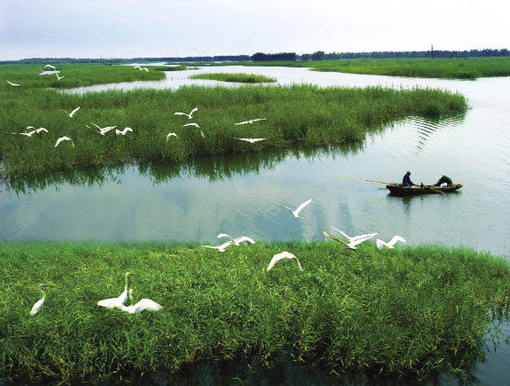Xuzhou – the “Athens of the Orient “
A journey through Xuzhou’s green mountains and winding rivers would be incomplete without sampling local delicacies developed by Peng Zu. It is said that during Emperor Yao’s reign, Peng Zu, a health expert and a gastronome, was rewarded with the territory of Xuzhou because he cured the emperor of typhoid fever. He was granted the further honor of having the city named after him, Pengcheng.
Peng Zu supposedly lived for 800 years. He passed on to future generations his unique cooking methods and special dishes for health preservation. Among them, two dishes are still popular today – Zhi Geng (pheasant soup) and Yang Fang Cang Yu (fish hidden in mutton cubes). Zhi Geng is a braised mixture of pheasant and broomcorn millet fruit (later, barley seeds were used). The soup is especially good for enriching the blood and vital energy known in TCM as Qi. It is said Emperor Qianlong once tasted the soup on his tour of south. He commended it as the best soup on earth. Yang Fang Cang Yu is steamed or braised chunks of mutton filled with fish. The Chinese ancients believed this mixture embodied the most fresh and delicious food and was a perfect combination.
Today, you can still sample authentic Zhi Geng and Yang Fang Cang Yu in Xuzhou. You can pay your respects to Peng Zu’s 46-meter-high statue in the downtown area, and learn more about this legendary figure by visiting the ancestral hall, temple and tomb of Peng Zu. According to Director Luo, Xuzhou is planning to construct a Peng Zu Health Preservation Cultural Park to commemorate this influential character and study and share his healthy living ideas, which are pertinent to modern society.
Qiandao (Thousand Islands) Wetlands Scenic Area.

